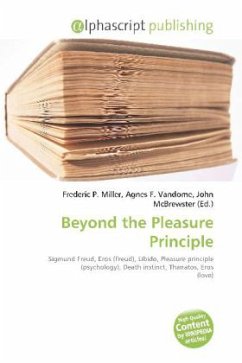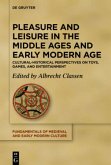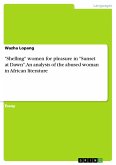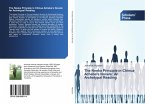Please note that the content of this book primarily consists of articles available from Wikipedia or other free sources online. "Beyond the Pleasure Principle" (first published in German in 1920 as Jenseits des Lustprinzips) is an essay by Sigmund Freud. It marked a turning point and a major modification of his previous theoretical approach. Before this essay, Freud was understood to have placed the sexual instinct, Eros, or the libido, centre stage, in explaining the forces which drive us to act. In 1920, going "beyond" the simple pleasure principle, Freud developed his theory of drives, by adding the death instinct, often referred to as "Thanatos," although Freud himself never used this term. The main importance of the essay resides in the striking picture of human being, struggling between two opposing instincts or drives: Eros working for creativity, harmony, sexual connection, reproduction, and self-preservation; Thanatos for destruction, repetition, aggression, compulsion, and self-destruction.
Bitte wählen Sie Ihr Anliegen aus.
Rechnungen
Retourenschein anfordern
Bestellstatus
Storno








